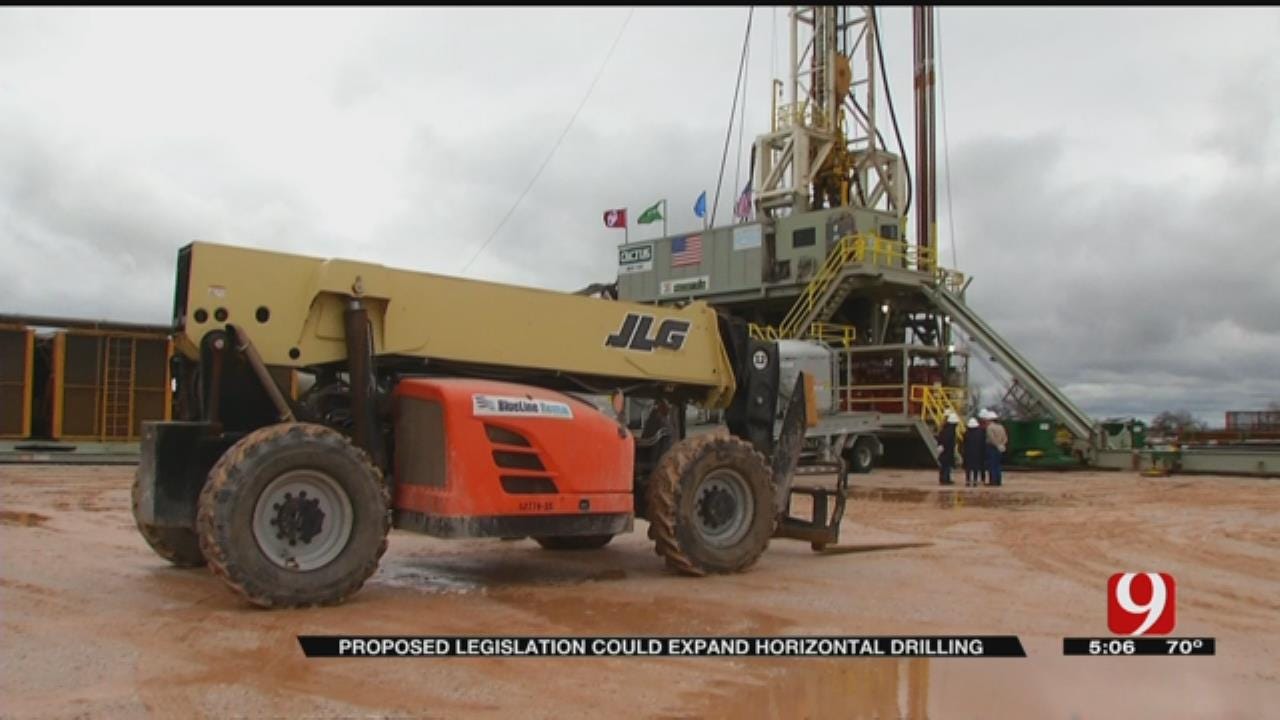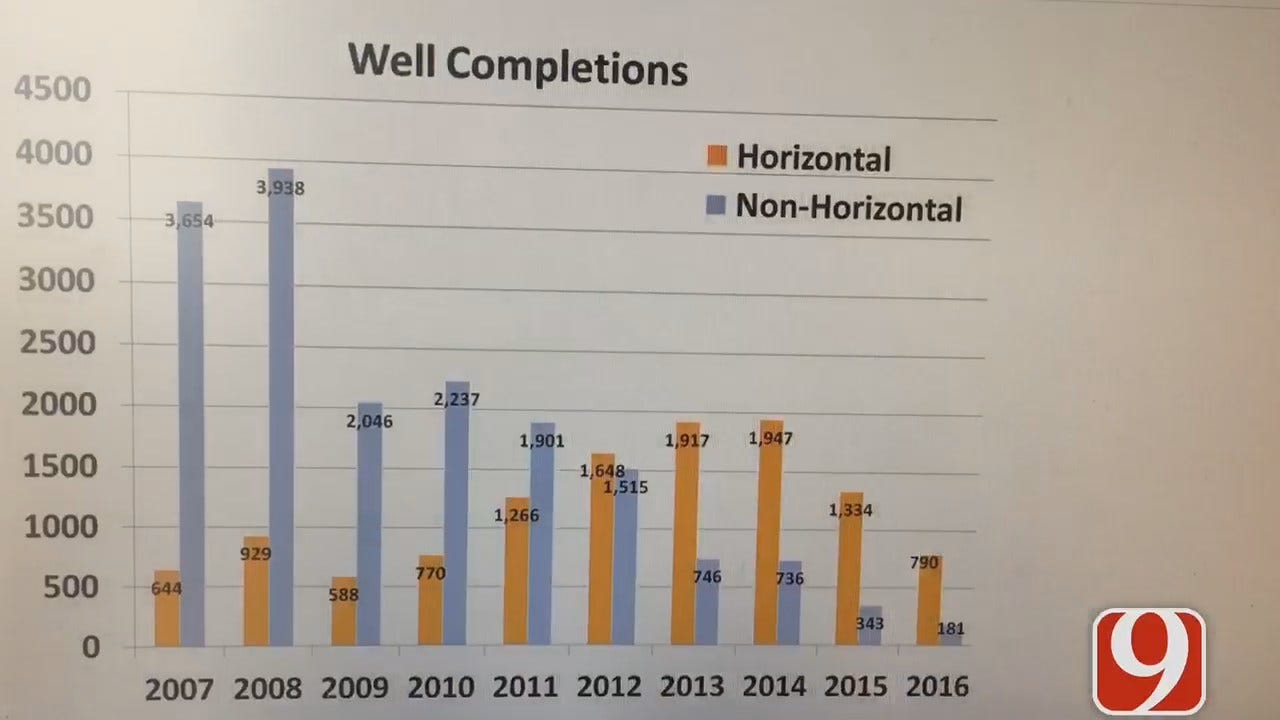Proposed Legislation Could Expand Horizontal Drilling
<p>Oklahoma's normally unified oil and gas industry is split right now over legislation that would expand the rights of horizontal drillers.</p>Thursday, April 20th 2017, 7:11 pm
Oklahoma's normally unified oil and gas industry is split right now over legislation that would expand the rights of horizontal drillers.
Owners of vertical wells are teaming up and speaking up, out of concern that lawmakers may be persuaded to give producers even wider latitude to drill horizontally, which, they say, would not only hurt their revenues, but the state's as well.
This showdown over the rights of vertical well versus horizontal wells has been percolating for several years, but seems now to have reached a boiling point. Members of the newly formed industry group, Oklahoma Energy Producers Association (OEPA), say horizontal frack jobs are now routinely damaging and stealing the reserves from existing vertical wells.
"We had a number of wells hit," said Joe Warren, a partner at Cimarron Production Company, "our production was off 70 to 80 percent -- we've spent over $100,000 trying to remediate the damage and we're still off more than 60 percent of what our production was before it happened."
The percentage of wells being drilled horizontally in the state has skyrocketed in the last decade--from 15 percent in 2007 to 81 percent last year.
This is why many owners of vertical wells say the industry needs regulatory reform, not the long-lateral bill being pushed at the Capitol that would expand the distance horizontal wells can be drilled into non-shale formations from one mile to two miles.
"We have set this horizontal universe onto the vertical regulatory system," said Warren, "and it's being gamed -- our statutes and regulations are being gamed by these large drillers, to the detriment of the state."
Over at the Oklahoma Oil and Gas Association, the outlook is very different.
"Are there wells that are impacted?" asked OKOGA Executive Director Chad Warmington, "Sure, but most of those disputes are handled company to company, or settled in some sort of mediation or go to court."
Warmington says such disputes are still rare and there are ample remedies available to vertical producers.
But OEPA officials say horizontal frack jobs pose increasing environmental risks and are taking reserves away from vertical producers, who pay higher tax
"They pay seven percent gross production tax," said Mike Cantrell, OEPA's legislative director, "and the long-lateral horizontals that are replacing them are paying two percent -- now you do the math."
But Warmington says there's another, more important part of the equation.
"Passing the long-lateral bill is going to open up ten to fourteen formations in the STACK and SCOOP alone," Warmington stated, "for drilling that's just not possible right now."
Warmington says that will mean more rigs running, and with each rig, he says, is associated 200-300 jobs.
More Like This
April 20th, 2017
April 8th, 2025
April 7th, 2025
Top Headlines
April 14th, 2025
April 14th, 2025
April 14th, 2025














